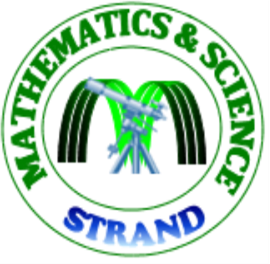
Focus on Career Advancement: This strand is likely tailored to individuals who are already educators or who aspire to become teachers and are interested in advancing their careers within the field of education. It's geared towards helping them grow as professionals.
Pedagogical Advancement: The Professional Development Strand may include advanced coursework and training in pedagogy and teaching methodologies. This can help educators improve their teaching skills, refine their instructional techniques, and stay updated with the latest trends in education.
Leadership Skills: Aspiring educational leaders may find this strand valuable. It might include courses and workshops on leadership skills, school management, and educational administration. This can prepare educators for roles such as department heads, curriculum coordinators, or school administrators.
Research and Scholarship: Professional development often includes an emphasis on research and scholarship. Teachers may engage in research projects or coursework related to educational research, helping them become more informed and effective practitioners in the classroom.
Specialized Areas: Depending on the college's offerings, the Professional Development Strand may have specialized tracks or areas of focus. For example, it might offer concentrations in inclusive education, technology integration, assessment and evaluation, or curriculum design.
Mentorship and Coaching: Many professional development programs provide opportunities for educators to receive mentorship and coaching from experienced teachers or educational leaders. This can be instrumental in personal and professional growth.
Continuing Education: The strand may facilitate opportunities for educators to earn additional certifications, endorsements, or qualifications to enhance their teaching credentials and career prospects.
Networking: Professional development often involves networking opportunities. Educators in this strand may connect with colleagues, mentors, and experts in the education field, which can lead to collaborative projects, shared resources, and professional support.
Reflective Practice: Encouraging reflective practice is a common component of professional development. Teachers may engage in self-assessment and reflection on their teaching methods and student outcomes, with guidance on how to make improvements.
Community Engagement: Some programs in this strand may encourage educators to become more involved in their local educational communities, participating in outreach programs or community projects related to education.
Integration of Technology: Given the importance of technology in modern education, the strand may include training on how to effectively integrate technology into teaching and learning.
Lifelong Learning: Professional development is often seen as a lifelong commitment to learning and growth. Educators in this strand may develop habits of continuous improvement, staying updated with the evolving educational landscape.
The Professional Development Strand is essentially designed to empower educators to become more effective, adaptable, and informed professionals in the field of education. It equips them with the knowledge and skills needed to excel in their teaching careers and contribute positively to the educational community.